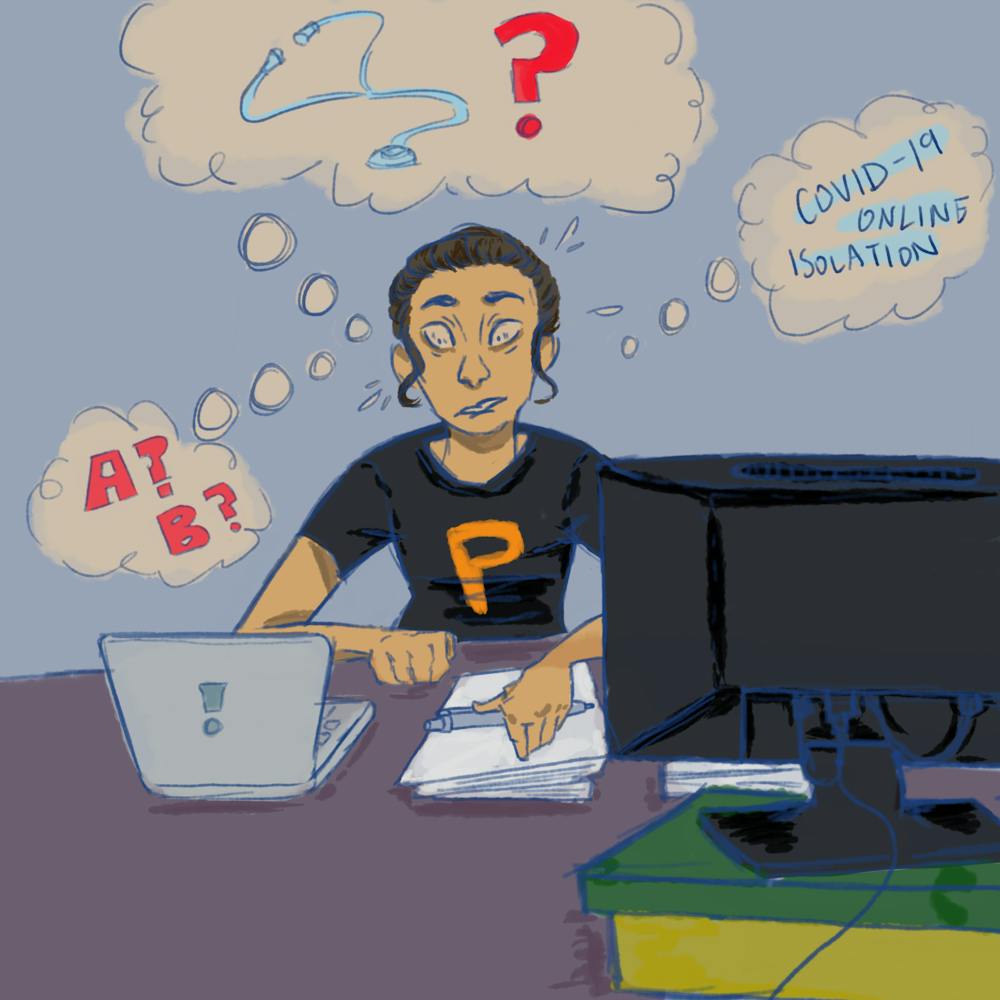The following is a guest contribution. If you would like to see your piece published by The Prospect, please write to us at prospect@dailyprincetonian.com.
Long before COVID-19, I knew I wanted to be a doctor. I always cherished the idea of serving others, and practicing medicine seemed — and still seems — like the most human and empathetic of all means of service. It relies so profoundly on human connection, an understanding of the human condition, and a commitment to alleviating human suffering.
This notion was illuminated for me in March 2020 as I watched doctors become much more than the healers in white coats providing diagnoses. I watched as they became the last masked faces many saw, the last muffled voices many heard, and the last gloved hands many held. Here were doctors moved to tears by the horrific sights before them. I had always seen doctors as pillars of science and logic, front and center, but now I saw them as people moved to tears by the sights before their eyes. Here were doctors, and they were just as human, just as mortal, as the rest of us. They were people. People who braved their fears to come to work every day and risk their lives in the endeavor of possibly saving one.
To say I was in awe would be the understatement of the year. And it was then — speaking to doctors, watching the news constantly — that I understood the true humanity of medicine. Behind every masked face is a comforting smile, that every trembling gloved hand is a hand to hold, that inside every lab coat is a beating heart, that within each scrub cap is a mind racing with thoughts of “What more can I do?”
It’s tempting to look at medicine and immediately think of anatomy and physiology. COVID-19 spreads due to respiratory droplets. Symptoms, if symptomatic, include a loss of smell and taste, a fever, fatigue, difficulty breathing, and more. The hypothalamus cannot regulate body temperature leading to fever. The lungs fill with fluid, making it difficult to breathe.
What this look at medicine misses is also what is so intrinsic to its nature: empathy. In April 2020, I would turn on CNN and listen to health professionals speaking after a 24- or 48-hour shift in the ER. “What was it like?” I would ask myself, “to be the last hand a patient holds? To be the last masked face they see? To hold so many hands in a day and return home only to risk everything again the next day?” I found myself choking up as I asked myself these questions, much like those I was watching.
I vividly recall watching a nurse break down on national television while answering these exact questions. I sat on my couch, feeling so utterly helpless. I kept the Johns Hopkins COVID-19 tracker open and watched as the red dots increased in size and magnitude.
But what the red dots on the tracker would never capture was what I was watching before my eyes. And in doing so, I understood that case counts and mortality rates — numbers — only take us so far in understanding a situation. I hold a deep appreciation for journalism during the pandemic for telling the stories that numbers can never tell. The story of a doctor being forced to choose which life to save, the story of a doctor being petrified of bringing COVID-19 back to those they love, the story of a doctor doing all they could and nothing being enough. These are stories that numbers and graphs can never tell, and yet, stories that are so intrinsic to an understanding of our shared humanity.

When I tell people I want to be a doctor, most of the responses I get focus on the clinical and scientific aspects of the job. I’m keenly aware of the fact that I’m viewed as one of those pillars of science and logic: someone who is simply providing the next diagnosis, seeing the next patient, and filling out the next chart. But as I’ve learned from this pandemic, it is the resilience, dedication, and paramount concern for the greater good that keeps that pillar standing strong.
I admire the vulnerability doctors show as I have learned to synonymize such vulnerability with great strength. It’s not easy to lose patients day after day due to the same malady, bereft of a cure. It’s even harder to keep going, to keep fighting the good fight in the name of possibly saving a life. Doctors are only human. But amid all that they are, that’s the most important thing they can possibly be.
Anika Buch is a sophomore concentrating in molecular biology. She can be reached at ambuch@princeton.edu. Buch is also an Assistant News Editor for The Daily Princetonian.









